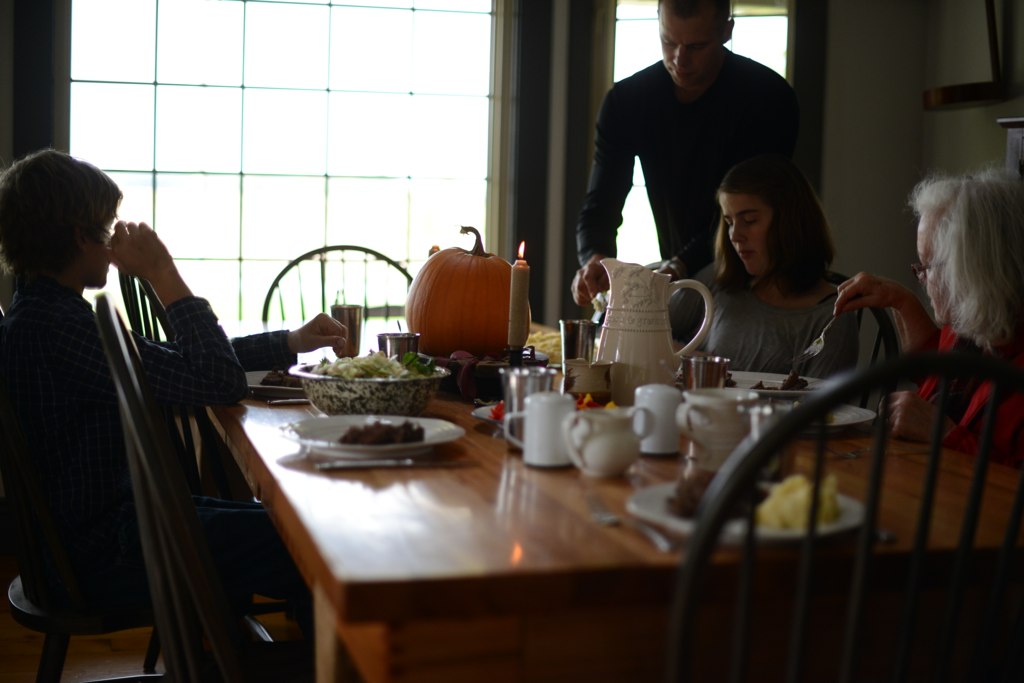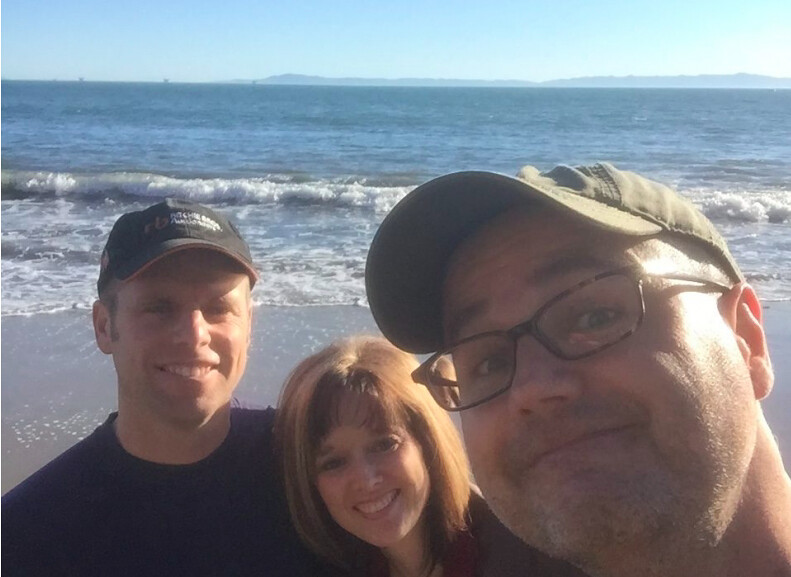Almost two years ago, I wrote that I fervently believe Scott Sauls’ first book, Jesus Outside the Lines, should be in the hands of every single Christian without exception. Since then, Scott has become a trusted friend to my husband and I. When we have questions that are wrestling us down, when we need a prayer warrior in the middle of the night, a fellow pilgrim’s hand, a redeemed saint’s mind, and a pastor’s heart, Scott is the friend we turn to. Scott has faithfully, time and time again, befriended us with deeply insightful wisdom, glasses-of-cold-water refreshment and encouragement, and an extraordinarily humble and vulnerable heart that beats like Jesus’. Scott’s second book, is a direly needed, must-read for the times we are in: Befriend: Create Belonging in an Age of Judgment, Isolation, and Fear. It gives us joy to welcome our friend, Scott Sauls, to the farm’s front porch today . . .
Thanks to social media, we are more connected than ever.
We are a lot lonelier, too.
Social media does have its benefits. Like steak, wine, and politics, social media can add value to our lives—in moderation.
But like steak, wine, and politics, it can also damage health if we consume too much.
For example, according to a 2015 Forbes study, as social media engagement increases, so does anxiety and depression.
Rather than create belonging, this act of trading presence and eye contact for a screen can feed narcissism, gossip, comparison, low self-esteem, and isolation.
This should not surprise us, because digital likes, follows, feeds, and fans are weak imitations of actual, in-the-flesh friends. Promising to cure our loneliness, they rarely deliver.
Instead, they add to our loneliness.











This loneliness of ours is not a flaw.
We aren’t lonely because something is wrong with us. We are lonely because something is right with us.
Our loneliness is the image of our triune, communal God in us, beckoning us to connect, to know and to be known, to love and to be loved, to befriend and to be befriended.
Loneliness urges the withdrawn self to engage. It calls the online persona to become a person again. It calls the impostor to get healthy by getting real.
Loneliness begins to fade when the image-conscious self-editor, the retreater, the hider, and the poser in us begins a transition toward transparency.
But transparency can be fearsome and disorienting.
In an interview about his book, How I Lost Five Pounds in Six Years, comedian Tom Arnold got honest and said that the reason he writes books, the reason he does comedy—the reason he does everything—is because he is deeply broken and is desperate for people to like him.
Tom Arnold’s (and our) insatiable hunger for “likes” taps into the image of God in us and our longing to be known and loved, to be exposed and not rejected. It also taps into our fear of being cast out, excluded, diminished, and forgotten by the people we let in.
Because ours is a world of judgment, isolation, and fear—because we have reasons to assume the world is not safe—we become social chameleons, blending into the colors and textures of whatever environments we inhabit.
We have a chameleon self for each situation—our work self, our party self, our church self, our at-home self, our Internet self, and many other selves that we put on to self-protect.
Like a chameleon, we are in chronic adaptation mode, tweaking our external colors and textures to blend in and belong and to ward off potential predators.
Sadly, this destructive strategy appeals to our frail and fearful hearts.
We want to be vulnerable, to love and be loved, yet we are afraid to risk and expose our true selves.
But C. S. Lewis was right: “To love at all is to be vulnerable. Love anything and your heart will certainly be wrung and possibly broken.” And yet, says Lewis, “The only place outside Heaven where you can be perfectly safe from all the dangers . . . of love . . . is Hell.”
How can we find healing for our ache of loneliness?
Where can we turn in our search for connection and for a safe space to know and be known?
In our age of church shopping, church critiquing, church splitting, and church leaving, it seems we have forgotten Jesus’ vision for the church.
We must remember that the church is not a social club for well-dressed posers; it is a hospital for the sick, and Jesus is the chief Physician.
The local church is a detox center for addicts—for those addicted to drugs and sex, as well as junkies desperate for their next hit of porn, gossip, power, recognition, greed, and retail therapy.
Jesus’ vision for the church as a purposeful, powerful, healing, safe hospital for the sin-sick addict in all of us stands in stark contrast with our all too common view of the church as an optional, shiny social club add-on to our lives.
Membership in a local church means joining your imperfect self to other imperfect selves to form an imperfect community that, through Jesus, embarks on a journey toward a better future together.
As Dietrich Bonhoeffer reminds us, he who loves his dream of community more than the Christian community itself, with all of its weaknesses and frailties, becomes a destroyer of Christian community.
When we dismiss the local church, we dismiss and become destroyers of Jesus’ first and foremost love.
If only there were a church resembling the church of the New Testament, we tell ourselves, then we wouldn’t be so cynical about the local church.
We forget that the church at Corinth was narcissistic, arrogant, dysfunctional, litigious, and sometimes adulterous, racist, and unjust. Yet it received more redemptive attention and energy from Paul than any other New Testament church.
It seems that as Paul beheld the wormy caterpillar that was Corinth, he also envisioned the butterfly. He seemed confident that he who began a good work in them would be faithful to complete it.
How do we experience loneliness-slaying love in the midst of imperfect, messy community? It has been said, “Be kind because everyone you meet is fighting a hard battle.”
As we limp toward transparency and community and friendship with our own fears and insecurities, we recognize that we aren’t alone.
We are all much afraid. We all feel more insecure than confident, more weak than strong, more unlovable than lovely, more irredeemable than redeemed.
When we see that we are not alone, we can reach out to one another.
Don’t underestimate the power of words. While shaming words can take courage out of a soul, encouraging and affirming words can put courage back in.
When you offer critique to another soul, do it gently. When you offer encouragement to another soul, do it fiercely.“But,” we groan, “there are some things that bother me about this community, and there are people I really don’t like.”
Moving even toward people we don’t particularly like can give us our best opportunities to love.Biblical love is neither a secondhand emotion nor a sweet, old-fashioned notion. Love is actually a battlefield designed to reshape us into the likeness of the one who first loved us when we were not friends with him, but enemies.
“God demonstrates his own love for us in this: While we were still sinners, Christ died for us” (Romans 5:8, niv) We love, not in the sentimental sense, but in the gutsy, costly sense, because He first loved us. We do not have the resources in ourselves to extend such selfless love. We are resourced by another, by Jesus Himself.
Emerson once wrote, “One of the blessings of old friends is that you can afford to be stupid with them.”
With Jesus, we can afford to be stupid with Him because He has taken our shame away by moving our judgment day from the future to the past.
His death, burial, and resurrection have established us as His beloved bride, as those whom He is not ashamed to call his sisters and brothers.
We are and forever will be the cherished and kept daughters and sons of his Father, who is also our Father.
We are not a consumer good to Jesus; therefore we are not consumed.
We are his forever family—fully known and fully loved, completely exposed and never rejected.
We can befriend others — because this Jesus is our Friend.
Scott Sauls
is senior pastor of Christ Presbyterian Church in Nashville, Tennessee. Before CPC, Scott was a lead and preaching pastor alongside Tim Keller with New York City’s Redeemer Presbyterian Church. He blogs regularly (seriously, bookmark him) and can be found being humble light on Twitter.
According to Tim Keller, Befriend is a “well-grounded project” that “looks at . . . the entirety of the Christian life through the prism of friendship.” Elisabeth Hasselbeck says that Befriend “provides real rescue from loneliness” and that “there could not be a better time for a book such as this one.”
I deeply concur. Befriend is one phenomenal book, direly needed for these times. Sharp. Informed. Culturally savvy. Biblical. This book will deeply change lives and start a befriend revolution. It’s powerfully changed me, and I’m sitting here revived in desperately parched places, feeling a bit of a holy hush. These pages echo the heart of God. Befriend is an absolute must-read that I cannot recommend highly enough.
[ Our humble thanks to Tyndale for their partnership in today’s devotion ]







